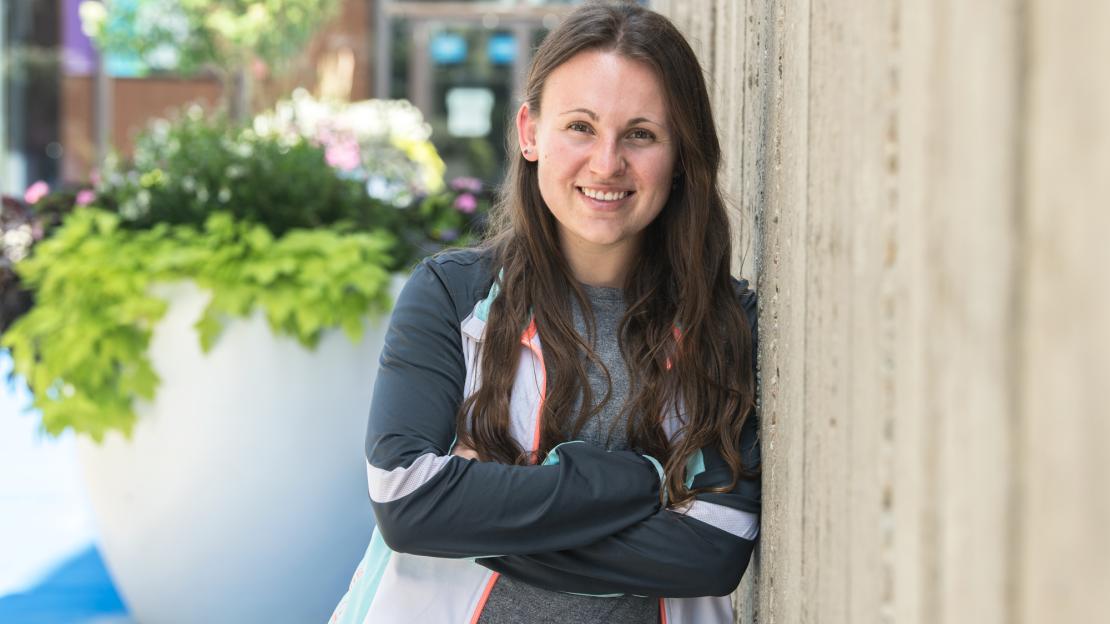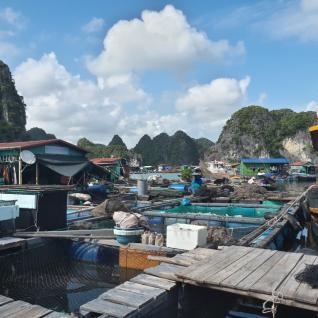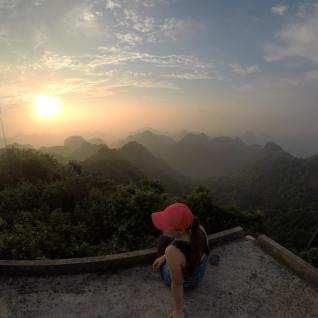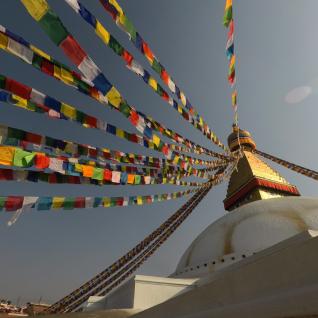Sylwia Pucek always wanted to return to Vietnam. It was the longest trip she had taken alone with her mother after they moved to Canada from Poland, and the experience sparked a desire to learn more about the world.
“It’s kind of why I went into international development, because I wanted to learn absolutely everything about the world,” says Pucek, a fifth-year international development student at U of T Scarborough.
Pucek spent the last 11 months in Hanoi, Vietnam, working as a program support officer with the Centre for Marine Conservation and Community Development (MCD). Her mandate was organized through WUSC (World University Service of Canada), a non-profit organization dedicated to providing education, employment and empowerment opportunities for youth around the world, and with the help of the Global Learning Travel Fund.
“I see Vietnam as a pinnacle country in Asia because they have such a huge coastline,” says Pucek. “About 50 per cent of their population lives on the coast and I saw this as a critical entry point into working with fishers and locals.”
‘Work with community to solve real problems’
Her two main projects focused on marine governance in Central Vietnam and plastic-waste education. Pucek also helped write and edit two chapters for the National Ecosystem Assessments Report, produced by the United Nations Environmental Program with her team at MCD –– a project she worked on throughout her internship.
As a program support officer, she contributed to research, grant and proposal writing, collected data and wrote about different marine and coastal ecosystems, such as seagrass beds and coral reefs, and locally managed marine areas (LMMA’s) (which she continues to do her research on at UTSC). She explains that lots of free and accessible data about these ecosystems in Vietnam is old, dating back to the ‘90s, which also hinders researchers, policymakers, and NGO’s reporting on the subject.
“With the help of my supervisor, my task was to gather the newest form of data that will help with policymaking.”
On days when she was not conducting in-office research, Pucek went out to two locally managed marine areas, Quy Nhon and Cu Lao Cham, for field research (which also contributes to her thesis).
Her biggest challenge: not speaking Vietnamese. In conducting literary reviews, Pucek would reach out to other researchers who spoke the language and also had student interns and marine conservation experts from both the office and the field work alongside her to translate during interviews.
“Everyone should have that experience where you’re working with a community to solve real problems,” says Pucek.
Exploring the world teaches you to conquer your fears
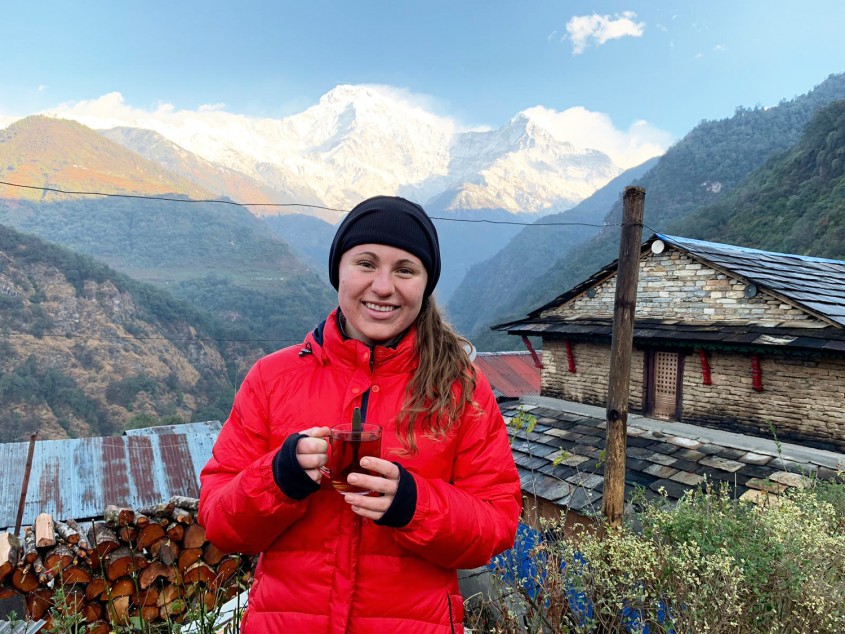
Hanoi reminded her a lot of downtown Toronto, with restaurants and cafes to visit with co-workers. Pucek also went running during the day, and attended a local gym to find friends with similar interests.
Every three months, Pucek had to leave the country to renew her Visa and took the opportunity to travel to Thailand (three times), Nepal and Singapore. She trekked with a small backpacking group to the foothills of Northern Thailand close to the border with Myanmar, and visited Cambodia with her mother.
And this doesn’t include her trips within Vietnam itself.
“I didn’t go with the intent of travelling because my main goal was my research and work. Being able to find people to talk and relate to takes time and trust. You honour a lot of friendships because you really worked to make them.”
Pucek quickly realized she was anxious about traveling alone when she arrived in Nepal and had to navigate her way, until she met with a hiking group to climb the Himalayas the next day.
“It challenged me to be more open in the next city I went to, to talk to people or even grabbing food. Going alone was my fear and that’s when I also realized how important community is.”
Not only did she have a chance to re-explore the country, a stroke of serendipity also helped her reunite with someone crucial from her past. While in a hotel with her mother, Pucek recognized the tour guide that showed them the city almost nine years ago.
“I told him he was one of the reasons I came back, because he showed us how everyone is doing what they can to make the world a better place.”
